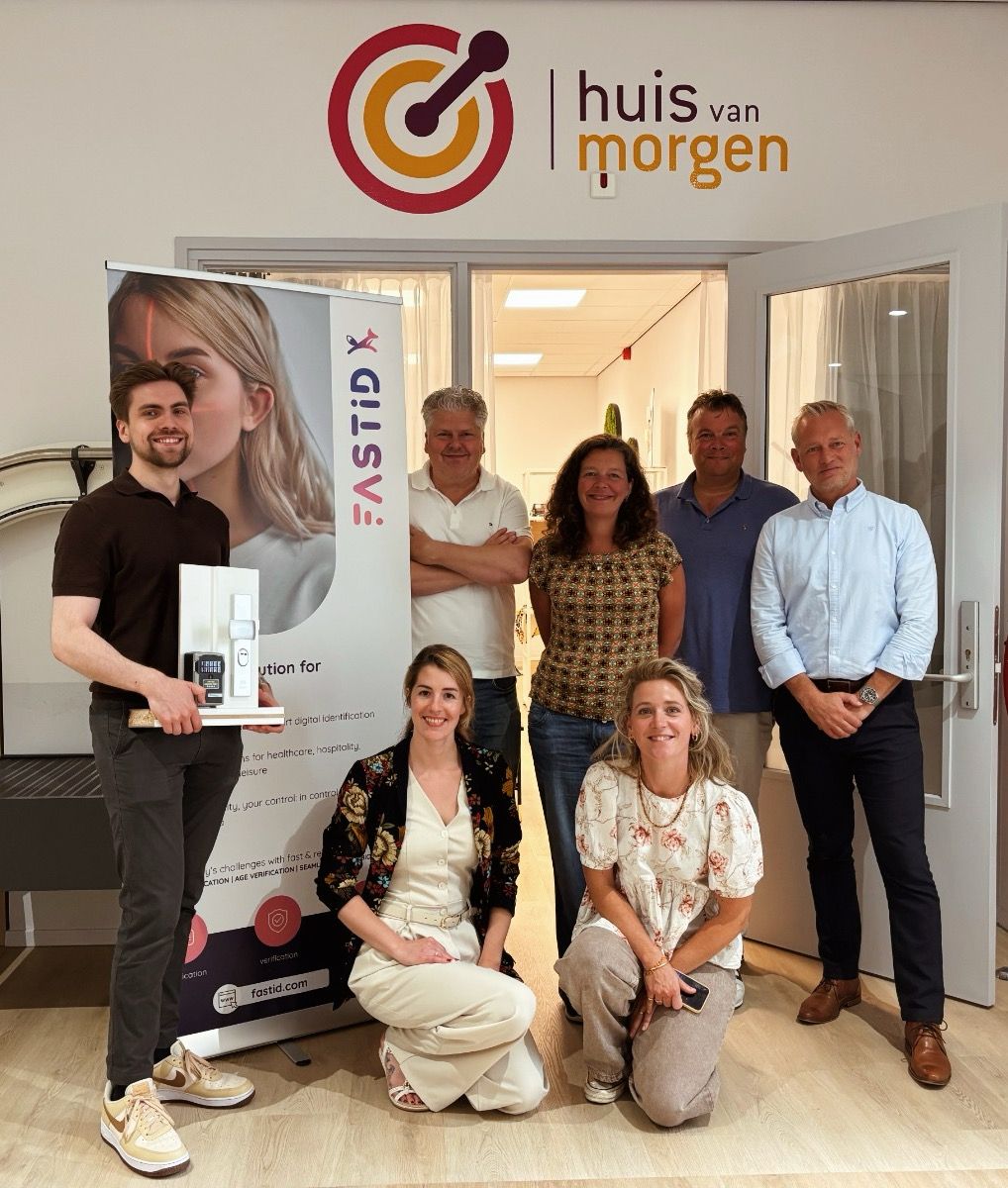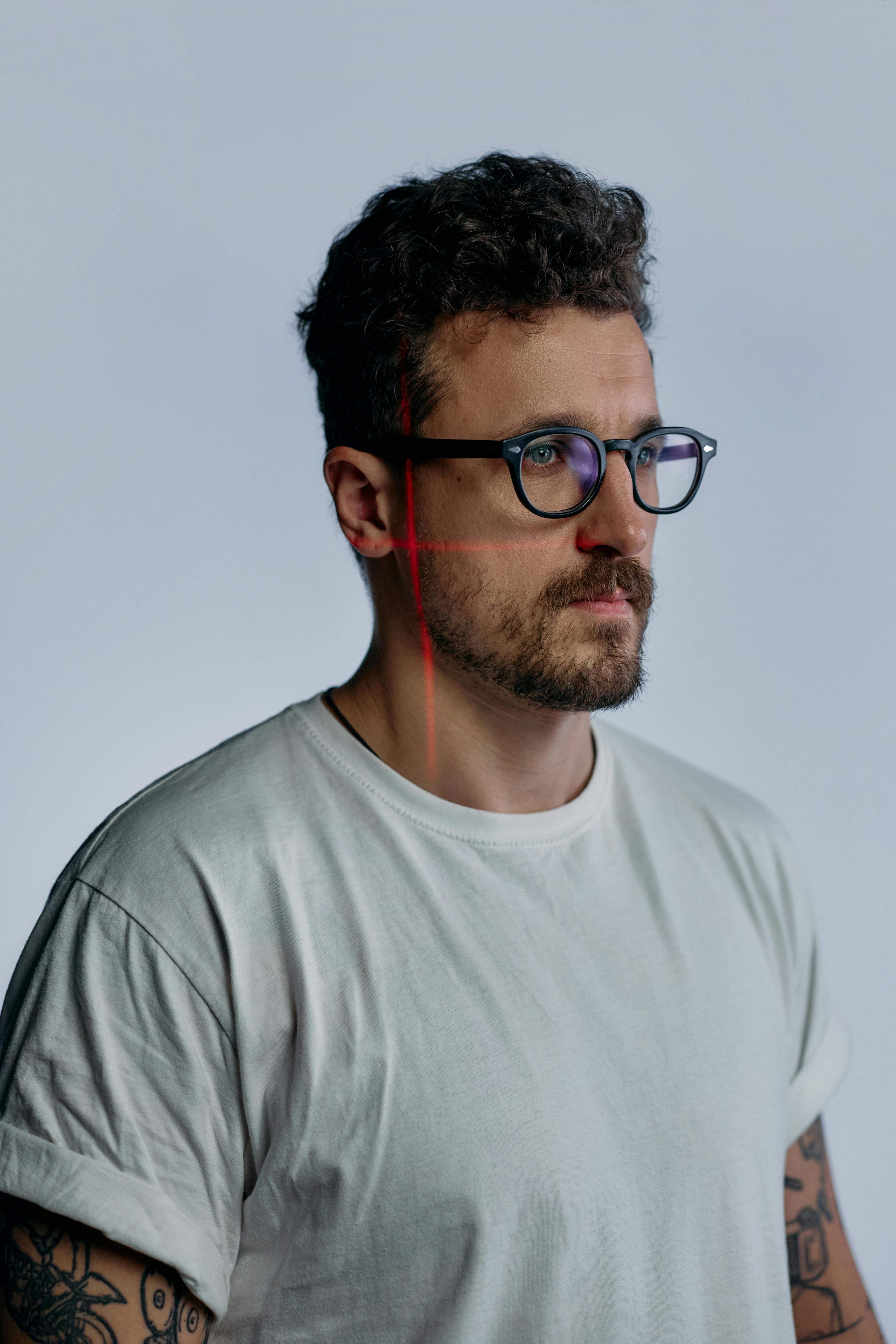
.png)

We spoke with Christ-Jan Danen about the importance of identification in the healthcare sector.“Identification is not a luxury — it’s the foundation of trust.” - Christ-Jan Danen, TWB
Thuiszorg West-Brabant (TWB) and FastID join forces for future-proof home care
Last month, an inspiring demonstration of FastID’s innovative identification technology took place at the Huis van Morgen. TWB is enthusiastic about the possibilities and has now given the green light for the next phase of collaboration with FastID. This phase focuses on testing and implementing digital identification in real-world care settings: a crucial step toward building safe, accessible and reliable home care for the future.
We spoke with Christ-Jan Danen about the importance of identification in the healthcare sector.
“Identification is not a luxury — it’s the foundation of trust.” - Christ-Jan Danen, TWB
“It’s absolutely vital. In home care, everything revolves around trust. Our clients, often vulnerable elderly people or those with complex care needs, must be able to trust that the right person is at their door at the right time. Unfortunately, we often see that this trust is under pressure: key safes are broken into, codes are lost or outdated or colleagues have to arrange access through cumbersome systems.
When you consider the impact this has on the sense of safety for both clients and staff, it’s clear: things need to change. At TWB, we want to guarantee care close to home. That also means we need reliable ways to access homes, not with makeshift solutions, but with a secure, traceable and standardized system that only grants access to authorized personnel. Identification plays a central role in that.”
"The pressure on home care is increasing. Due to demographic shifts and policies from both the government and insurers, more people with complex health needs are staying at home. At the same time, care staff are under greater strain, working in flexible and dispersed teams, often with poorly integrated systems.
This makes it difficult to have real-time insight into who has access to which home and when, creating risks for both data protection and physical safety. The vulnerability of current access management becomes especially clear in emergencies, where no up-to-date access code is available. In the worst cases, police intervention is needed to enter a home: unsafe and distressing for everyone involved.
Social safety is also under pressure. Traditional methods like key safes are prone to misuse, sometimes with heartbreaking consequences. That’s why secure, digital and personalized access isn’t a luxury: it’s a necessity. As a care organization, we must take responsibility for the sake of both clients and staff."
“Digital identification forms the backbone of future-proof home care."
"Given this context, FastID offers exactly what we need. It combines ease of use with security: staff can identify themselves via smartphone or biometrics and only those scheduled for a specific client at that moment are granted access to the home. This provides peace of mind, certainty and prevents misuse.
What I particularly appreciate is that FastID can be integrated with reliable, secure and certified access solutions, allowing us to monitor in real time who enters where and when. This not only helps us ensure safety, but also improves planning, reduces administrative burdens, and (let’s be honest) prevents fraud or mistakes."
"FastID offers a solution not only for secure access, but also for several persistent challenges in home care. First: safe and controlled home entry. No more loose keys or lost safe codes. Only authorized staff gain access and it’s verifiable and logged.
Next: efficiency. The system is intuitive and fast, without unnecessary steps in access or verification. And just as important: trust. Clients and caregivers know who is coming and when. That provides reassurance and strengthens the feeling of safety at home.
Internally, this approach brings clear advantages. We can plan better, caregivers spend less time on administrative tasks and we create a work environment where staff can operate more safely, even in the evenings or unfamiliar situations. It’s simply professional."
“Secure, personalized access isn’t a luxury — it’s a necessity for modern home care.”
"I expect that within five years, we’ll have no choice but to switch to digital, personalized access systems. The old-fashioned key safe will disappear, just like fax machines and paper handovers have become relics of the past.
As an organization, we must anticipate this shift. Not because it’s a technological novelty, but because it demonstrably improves the quality, safety and workability of home care; for both clients and staff.
Digital identification, integrated with planning systems, client records, home access and mobile workspaces, will form the backbone of future-proof home care. TWB is committed to embracing this development and working with partners like FastID and certified access providers to implement systems that not only fit today’s care practice, but are ready for tomorrow’s demands."


FastID is contributing to the European Digital Identity Wallet through the APTITUDE project. Discover how we’re helping build a secure and inclusive digital identity for all.
November 3, 2025

In a world where speed, security and convenience are essential, optimizing the access process is no longer a luxury, it’s a strategic necessity. Organizations that embrace digital identification and keyless access are building future-proof infrastructures that offer employees and visitors a safe and seamless experience.
October 1, 2025

Discover how biometric access helps your organization with secure, efficient & GDPR-compliant access control. Smart solutions for modern businesses.
March 5, 2025